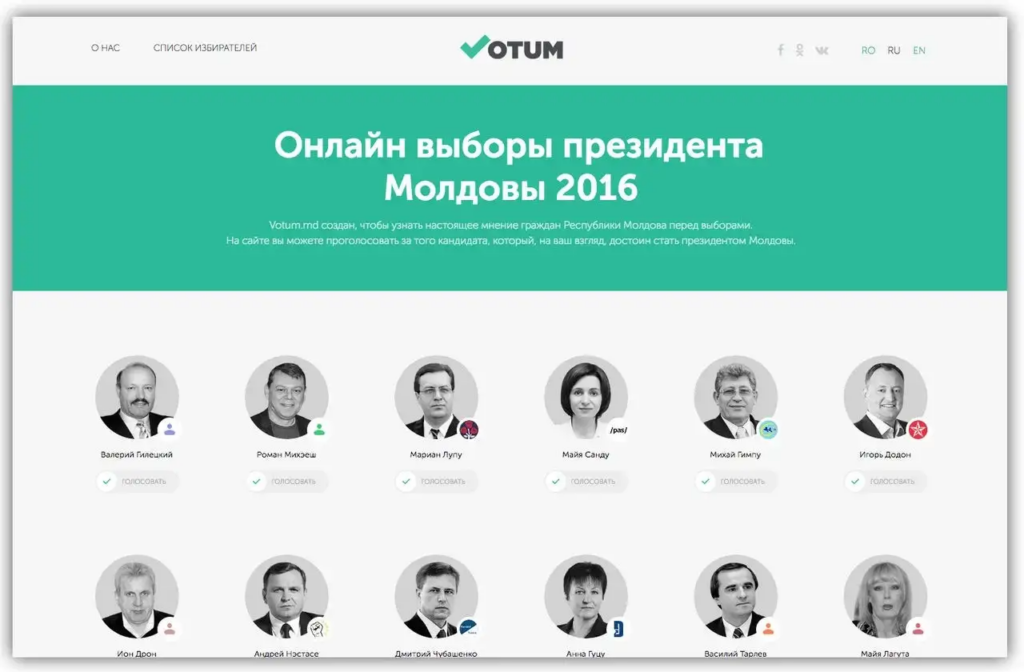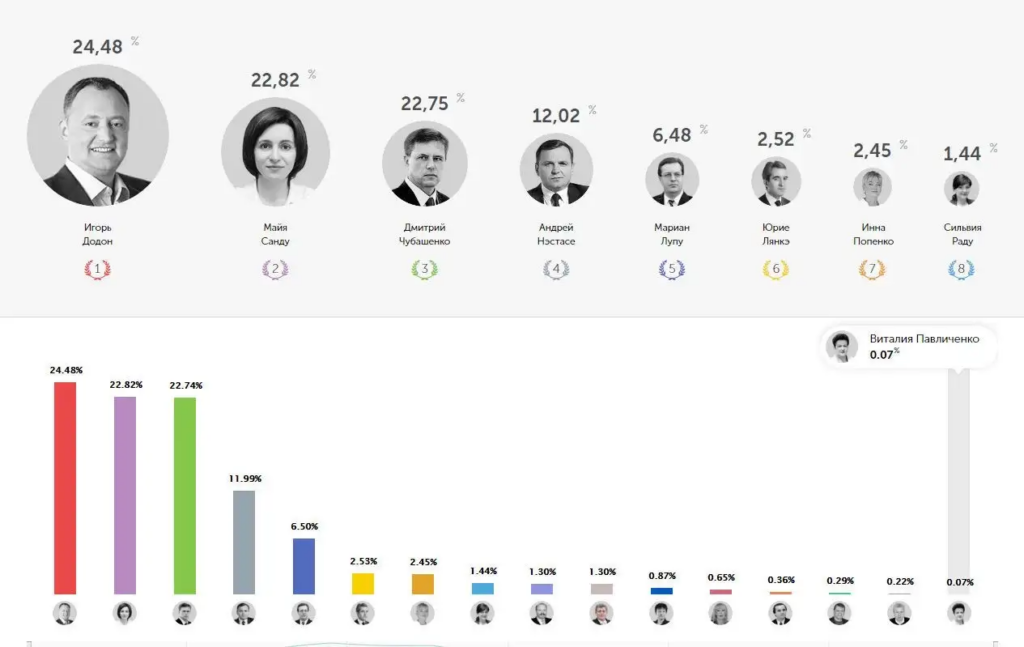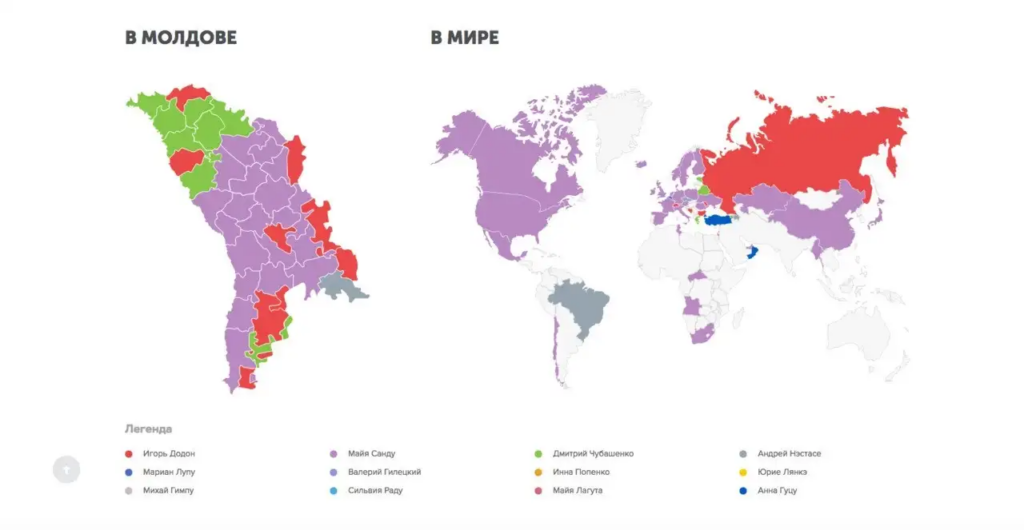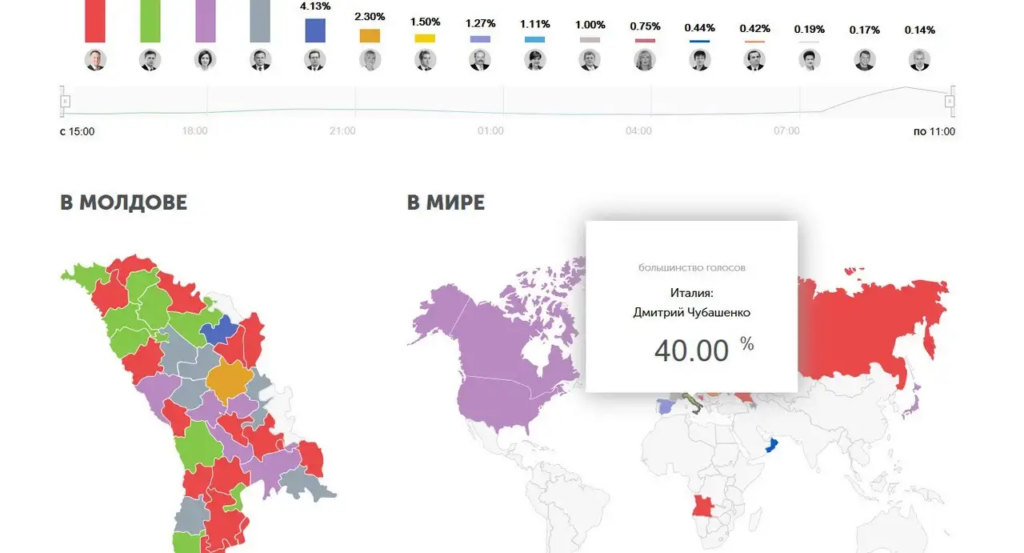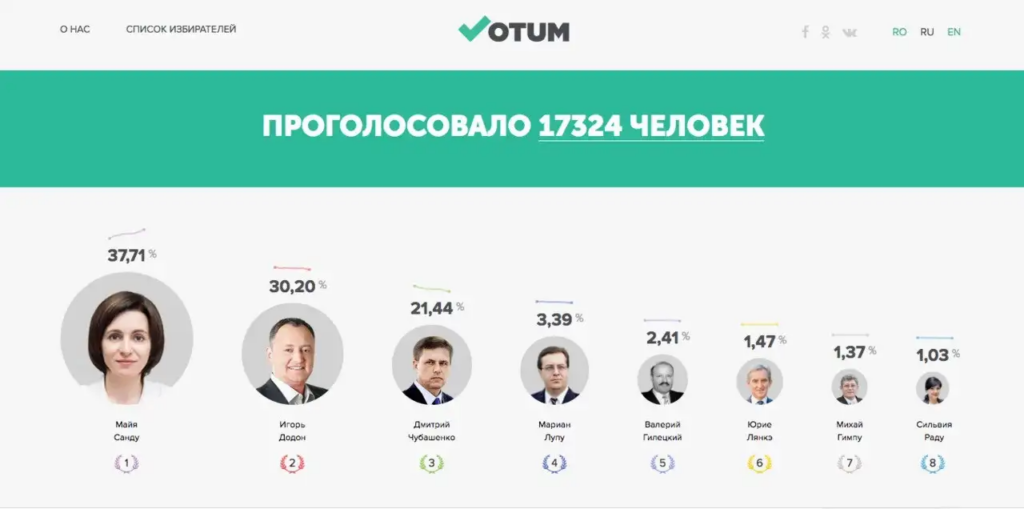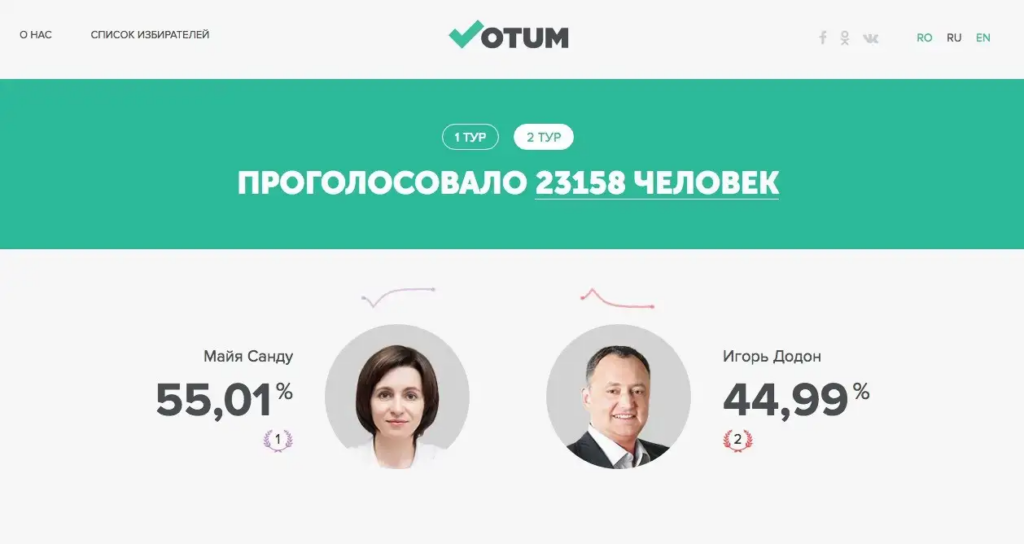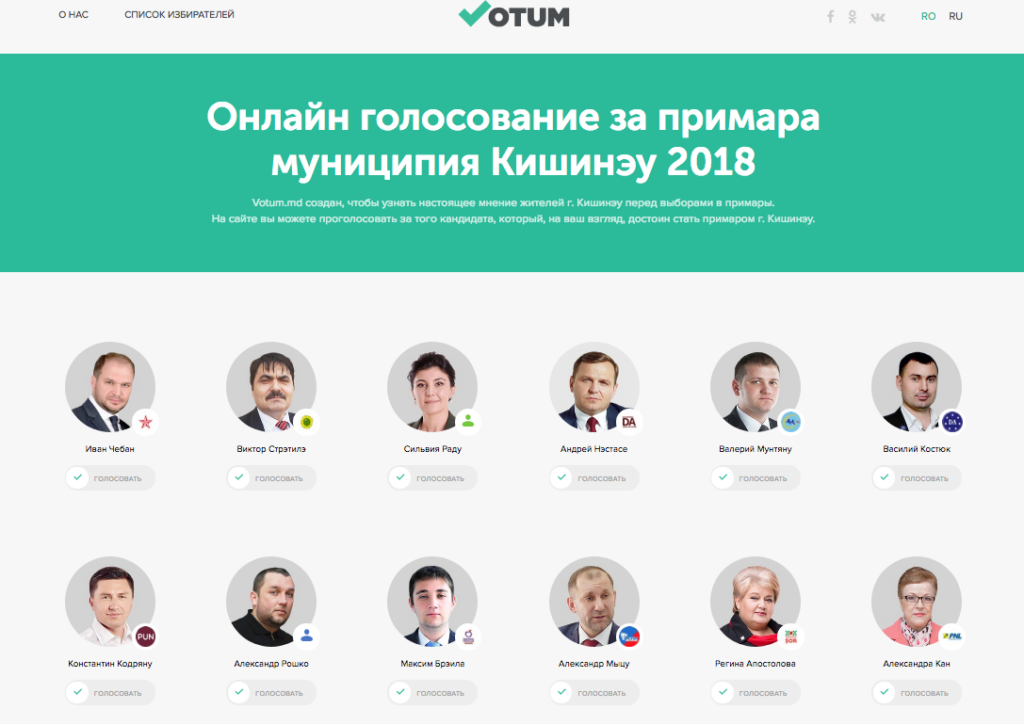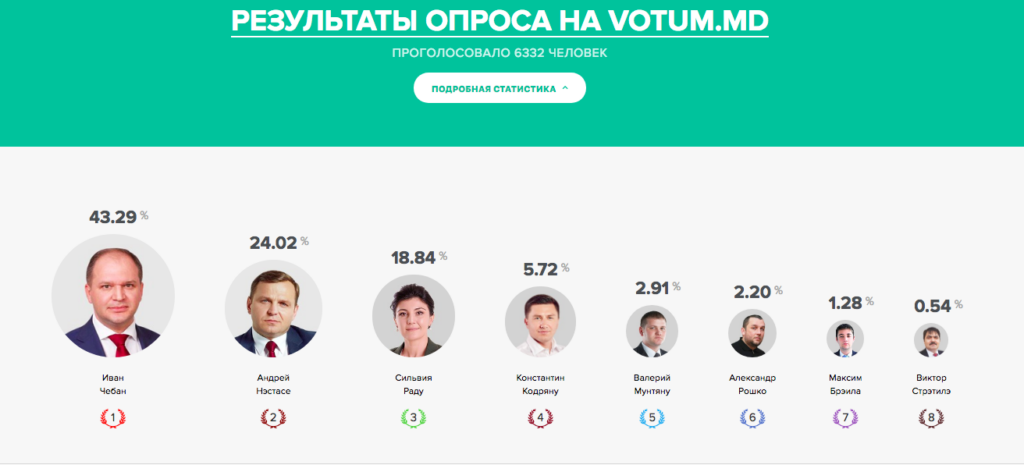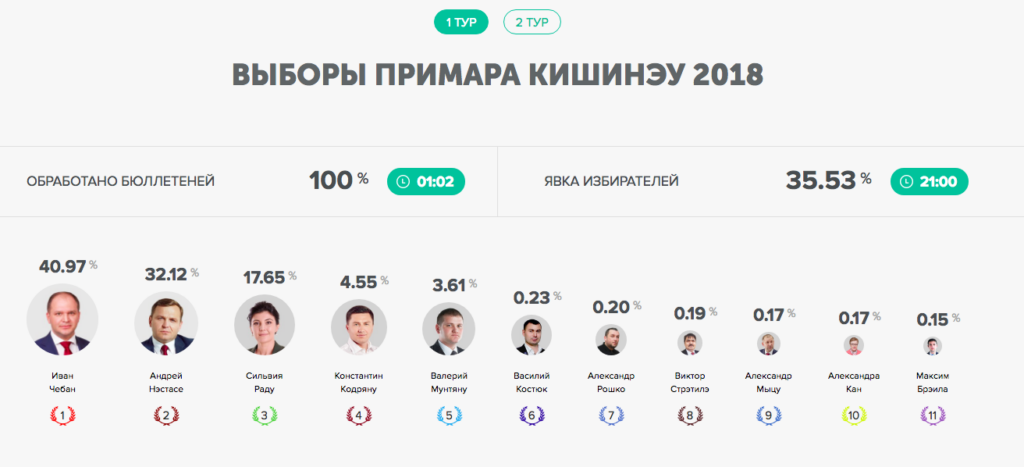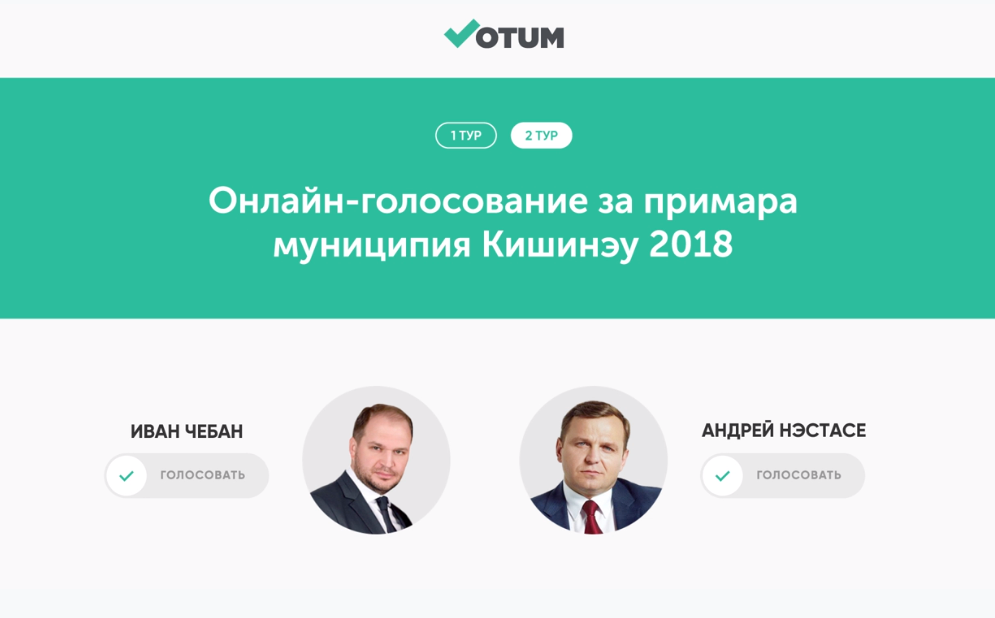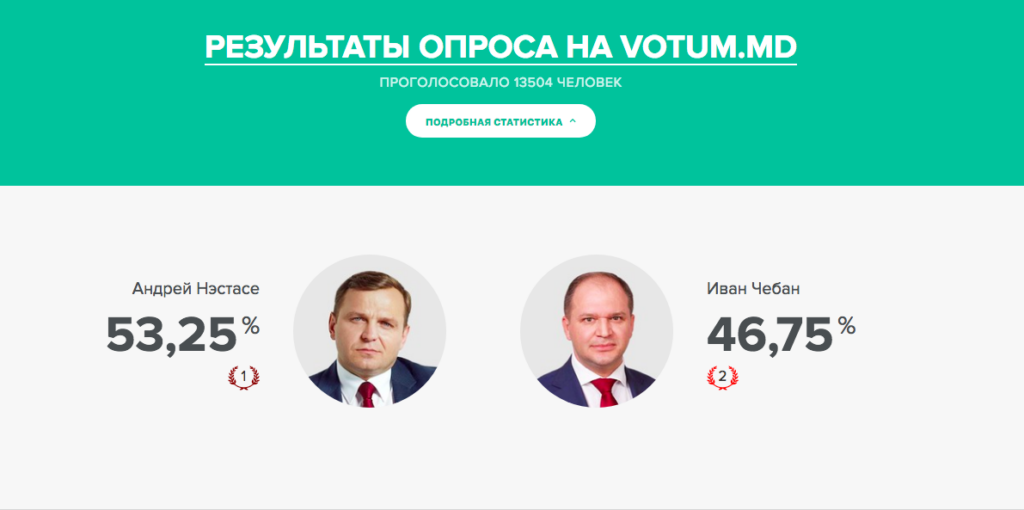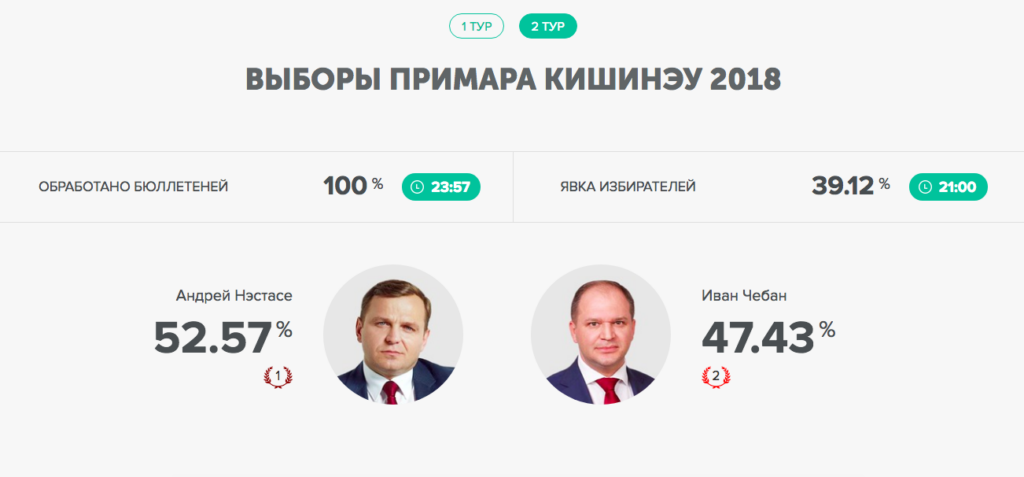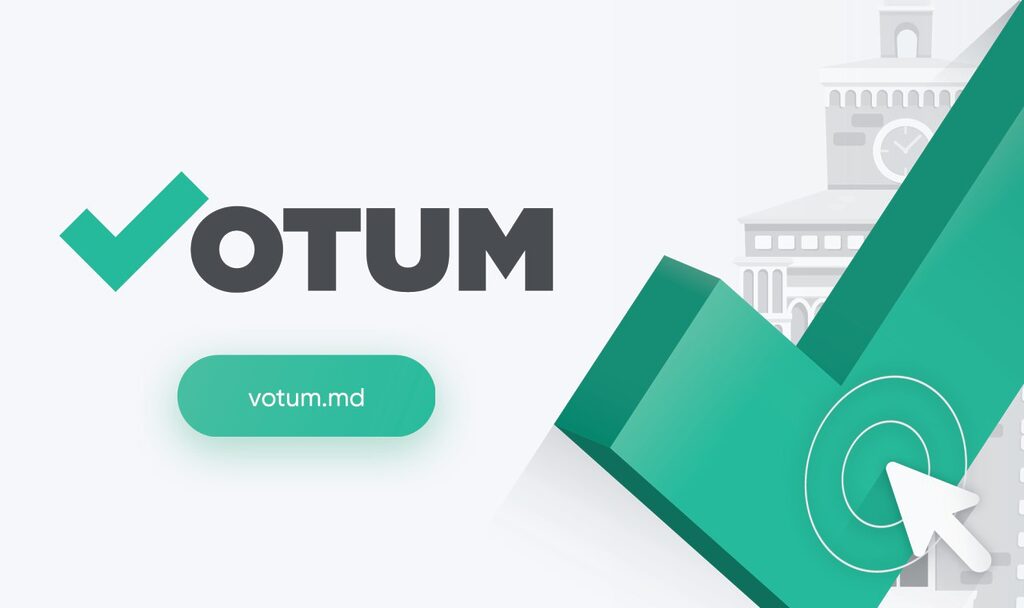In 2016, everyone in Moldova was preparing for Presidential elections. Everyone was preparing. Especially the media. Without going into details, even before the first round it was clear that there were two main camps in the country: one for Sandu and one for Dodon.

We wanted to reveal what is really going on in society – what the preferences of the electorate are. And we decided to create a platform that could produce real results (as much as possible, given the coverage of our sites).
The name came out easily. It is about voting, expressing opinions by voting. In Latin it sounds like Votum.

Meanwhile, the emergence of such a platform in itself looks like a vote of no confidence in the government and the media. Nonetheless, on August 30, 2016, exactly two months before the first round of elections, we purchased the domain votum.md.
How did things work?
We ran the poll from October 4 to October 24. A week before the first round, we stopped the voting. Of course, we wrote everywhere that this was not a real vote, but just a data-gathering exercise to reflect the real situation in the country. And the voting went on. Only registered users could express their political preferences.
Each candidate had his own page with background, campaign program, official income information, and other interesting information.
We made a map of Moldova and the world, so that people could indicate the region or the country where they are or live permanently. Not the most important thing, but for Moldova it allowed us to see the attitude of the different regions.
We also made a form where you could enter your age and gender.
It was possible to vote once, immediately after which you could see on the site detailed statistics about how other users voted.
A unique code was sent to the e-mail address linked to the account. When you entered the code in the search bar, you could find your vote.
And that’s what would happen:
The more votes, the more intense the color of the region. That is why it was possible to observe not only the situation in general, but also for each selected candidate. You chose a candidate and could see where people voted for him more actively and where he was not in the first lines at all.
Live with the electorate. About the live Q&A press conferences.
In addition to the online voting, we gave each of the candidates an opportunity to speak out on the Point press center site, connected to the information portal. For an hour or more, they answered real questions from real people. Of course, there were several broadcasts that created a sensation – interviews with Maia Sandu and Igor Dodon. Basically, everyone who came on the air showed themselves to be serious, reasonable people who offered some sensible views. At times, we had the feeling that some of them were reading from a political science textbook 🙂 But we also had some brighter moments. Maya Laguta, an independent candidate, came to visit us. A very emotional candidate with an interesting political background. An episode with her can still be rewatched somewhere in the annals of Facebook records.
First round. Results
So, according to the results of our preliminary online poll, that’s how people’s votes were distributed.
There was one “but”: online Maia Sandu won several percent over the acting president. There are several reasons: Internet users are more active in cities and our sites are more popular in central regions.
In the 3 weeks that the polling took place, 17,324 people were able to express their political preferences.
Second round. Results
The candidates who were the most popular on votum.md also reached the second round of the real elections. And we opened the polls again. This time 23,158 people voted.
https://point.md/ru/novosti/obschestvo/dmitrij-voloshin-podvel-itogi-raboti-votummd
The results of the Votum.md project proved that Moldova is ready for online voting, which made it possible to predict almost exactly the results of the 2018 Chisinau City Mayor elections.
Chisinau City Mayor elections 2018
In May 2018, the Chisinau City Mayor Elections took place, and we launched another online poll. The whole process was based on the same principle: people entered the website, browsed the candidates’ profiles and voted if they wanted to.
The result was as follows: Ceban and Nastase, according to Votum.md online poll, were the leaders and made it to the second round:
Web voting closed and everyone was waiting for the real results of the first round. The CEC presented its final data. As expected, Ivan Ceban and Andrei Nastase qualified for the second round and the CEC data corresponded almost exactly to the figures on Votum.md:
Besides our project many Moldovan researchers, such as: Association of Sociologists and Demographers of the Republic of Moldova, Center for Sociological Research of Moldova, Barometer of Public Opinion (BOM), Intellect Group and many others conducted surveys and forecasts. However, the poll on Votum.md showed the figures closest to the real results.
Second round of elections
While the candidates were preparing for the elections and sociologists were making forecasts, we started the second round of online polling on our site, the results of which became even closer to the real ones.
The second round was contested between Ivan Ceban of the Socialist Party of the Republic of Moldova and Andrei Nastase, the leader of the DA platform. 13,504 users expressed their opinions on the website. Here are the results:
After the second round of elections, the votes were distributed in this way:
This showed that the difference between the voting results on Votum.md and the actual election was less than one percent.
After the results of the Chisinau City Mayor elections, we were finally convinced that our online voting platform met all our expectations. Thanks to the high attendance of our online project and our neutral political position, we gained the trust of citizens. We can now confidently conduct polls on various topics in order to find out public opinion and provide Moldovan citizens with the most accurate data.
